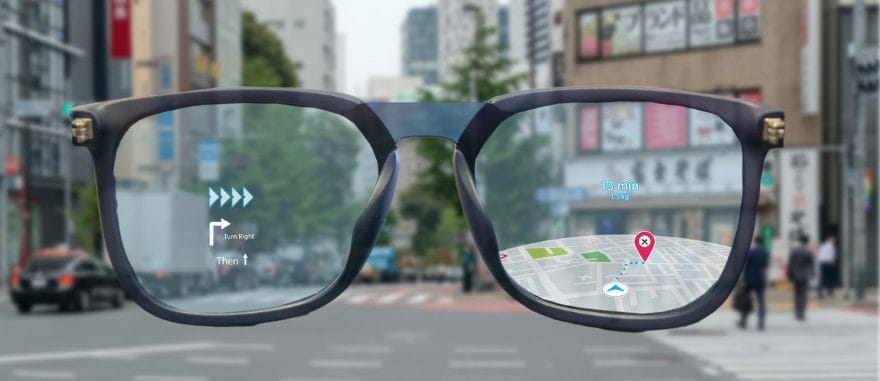The face of consumer monitoring, sharing, and communication of experiences and other important data has evolved because of the emergence of wearables technology. From fitness trackers to smartwatches and up to VR devices, smart glasses, and fashionable wearables, this innovative sector promises explosive growth. As brands work towards the improvement of their offerings, streamlining features to cater to specific niches, their appeal for wearable tech only continues to widen. With growing numbers of people embracing use of connected devices in their daily lives, increasing technological adoption and the spread of Internet of Things (IoT) are to propel this market further.
How Technological Advancements are Transforming Wearable Tech
Improved technological literacy among consumers had fuelled a recent surge in market growth, which is also seen to continue in the near future. One of the notable advancements is in AR glasses. Industry leaders such as Apple, Google, and Microsoft, along with many new players, are pushing the envelope towards the eventual widespread use of augmented reality. The transformation is led by AR glasses at a time when many boundaries that initially kept apart fashion, technology, and everyday utility dissolve quickly. Smartwatches grow to be multifunctional devices capable of being used for making payments and tracking health and AR will redefine personal interaction with the environments.
The post-pandemic world catalyzed a health-tech adoption boom in wearables, turning them from being mere style accessories to wellness tools. It is the blend of aesthetics and functionality where technology creates a blended universe that promotes life, whether it’s human or artificial, in ways yet unimaginable.

What are Augmented Reality Glasses?
AR glasses are wearable devices that surface definitive information about the real-world environment through an enhanced visual experience. Unlike Virtual Reality (VR) devices, which create a completely immersive digital environment, AR devices preserve the user’s perception of the real world and layer onto it appropriate digital content.
AR Glasses offer:
Display of Digital Information
AR glasses give consumers pertinent information without interfering with their surroundings by effortlessly superimposing digital material onto the physical world. Better navigation, educational tools, and contextual information are made possible by this feature, which boosts output and decision-making.
Voice and Gesture Recognition
These glasses can, by voice commands and gesture controls, provide hands-free operation for allowing one to interact with digital interfaces in a natural manner without the need for a physical manual input. This feature does indeed enhance user experience by enabling multitasking and keeping in touch with surroundings.
Enhanced Reality with 3D Visualization
AR glasses enhance perception and interaction with surrounding environments through superimposing 3D models and animations upon the physical location of the user. This feature, in particular, is very supportive in fields where complex ideas are difficult to understand; these are design, health, and education.
Real-Time Data Analysis
Real-time data processing allows AR glasses to display insights and analytics as they occur, facilitating prompt decision-making in dynamic circumstances. In industries like manufacturing and logistics, where timely information may greatly improve operational efficiency and reaction times, this capability is very helpful.
Key Sectors Impacted by AR Glasses:
Across a number of sectors, augmented reality glasses are transforming how companies function and engage with their clientele and staff.
Healthcare
Augmented reality (AR) glasses are revolutionizing surgical assistance by overlaying vital patient data for improved precision, enabling real-time collaboration between specialists for remote medical consultations, and enhancing medical training with 3D simulations that allow students to observe and practice surgeries effectively. In March 2024, Fresenius Medical Care (FME), the world’s leading provider of products and services for individuals with renal diseases, launched a new “Augmented Reality” (AR) application to facilitate learning for nursing staff in Kidney Replacement Therapy within Intensive Care Units.
The AR glasses, paired with digital learning modules, enabled nursing staff to learn how to operate acute dialysis machines on-site in the intensive care wards. The glasses streamed visual and acoustic recordings as users interacted with the dialysis machines, offering professionals an immersive learning experience. This innovative approach aimed to enhance training and improve patient care in critical settings.
Gaming
The AR glasses market is experiencing immense growth based on the growing gaming industry, which offers entertaining experiences of virtual elements integrated with the real world. The annual economic output from the U.S. video game industry was US$ 101 billion in 2024. Developers are increasingly making use of AR features in games, henceforth fuelling the increasing demand for compatible devices.
Future Outlook for AR Glasses:
As technology develops and hardware and software grow more advanced, AR glasses are expected to become more widely used in the future. Market players like Meta are majorly investing in augmented reality. In September 2024, Meta had introduced Orion, which offer largest field of vision in smallest AR glasses. Orion’s genuinely immersive use cases are made possible by that field of vision. These include life-size holograms of people, multitasking windows, and big-screen entertainment—all digital material that can be seamlessly integrated with perspective of the real world.
According to Pristine Market Insights, the future of AR glasses is poised for remarkable growth by 2030, potentially challenging the ubiquity of smartphones. Integration with smart home devices and IoT will facilitate seamless, hands-free control of everyday environments. Collaborative work environments will benefit from AR glasses, enhancing virtual teamwork in increasingly hybrid settings. Additionally, the healthcare sector will see significant advancements, particularly in assistive technology for the elderly, providing essential reminders and navigation support. Overall, AR glasses are set to redefine user interactions across various domains, making them indispensable tools in daily life.
Author Bio –
Ekta Mahajan is an exceptional writer and experienced market research analyst with a passion for uncovering market insights. Her in-depth knowledge of consumer trends, products and services allows him to deliver actionable insights that help businesses thrive in competitive markets.








